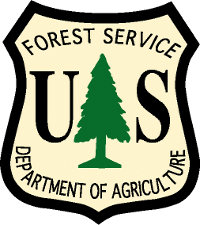Sonora, CA…Due to high fire danger, temporary fire restrictions are in effect in Moderate Hazard Areas on the Stanislaus National Forest (STF) Aug. 5 through the end of the official 2016 fire season. Forest Order 16-2016-3 prohibits campfires, briquette barbecues and smoking outside developed campgrounds, as well as welding and blasting activities in designated Moderate Hazard Areas of the forest – this is in addition to fire restrictions already in place in High Hazard areas.

In some specific cases, individuals may be exempt from these fire restrictions. For further information, please review the DRAFT forest order and moderate hazard area map on the STF web site (final will post Friday) This Forest Order serves as an extra measure to help reduce the potential for large and damaging wildfires.
Stanislaus National Forest leadership and fire personnel thank the public for doing their part to help prevent destructive wildfires. Please know the restrictions in Moderate and High Hazard Areas will be actively patrolled by STF, Law Enforcement Officers and Fire Prevention Specialists. Persons found in violation of these fire restrictions may be cited and fined.
Criteria for activating prohibitions in the Moderate Fire Hazard Area through a forest order is based on National Fire Danger Rating System indices and fuel moisture conditions. The Forest currently meets the criteria for activating the Moderate Fire Hazard fire restrictions using the Mt. Elizabeth weather station as a representative site. These restrictions are believed to be the most immediate and effective method to reduce the potential for loss of life and property, and to protect the physical, biological, and cultural resources of the forest from fire.
For further Forest information, call: the Stanislaus NF Supervisor’s Office at: 209-532-3671; Calaveras Ranger District (RD) at 209-795-1381; Groveland RD 209-962-7825; Mi-Wok RD at 209-586-3234 or Summit RD at 209-965-3434.
The mission of the U.S. Forest Service, part of the U.S. Department of Agriculture, is to sustain the health, diversity and productivity of the nation’s forests and grasslands to meet the needs of present and future generations. The agency manages 193 million acres of public land, provides assistance to state and private landowners, and maintains the largest forestry research organization in the world. Public lands the Forest Service manages contribute more than $13 billion to the economy each year through visitor spending alone. Those same lands provide 20 percent of the nation’s clean water supply, a value estimated at $7.2 billion per year. The agency has either a direct or indirect role in stewardship of about 80 percent of the 850 million forested acres within the U.S., of which 100 million acres are urban forests where most Americans live.
###


